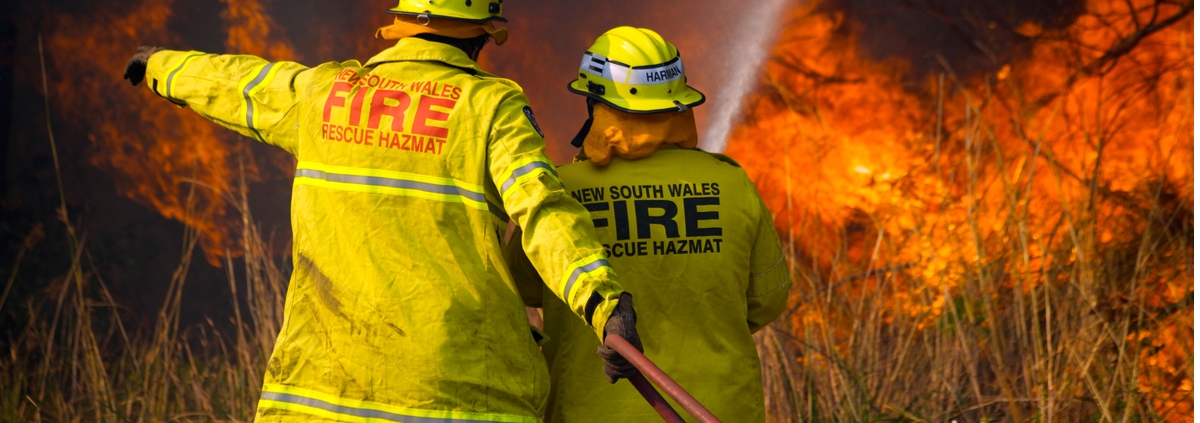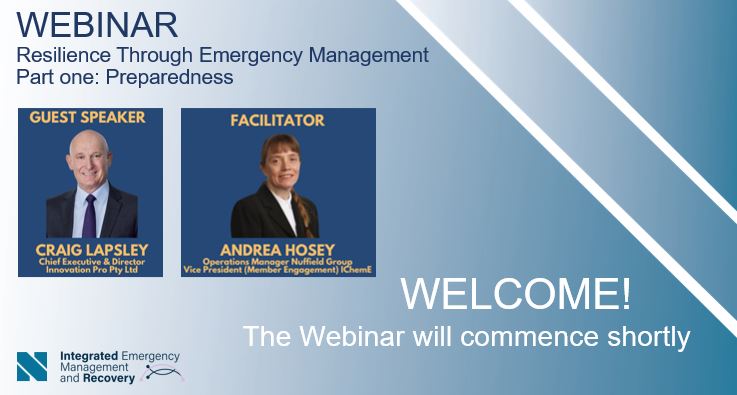Is the fire season going to be bad this year?
One of the questions I was asked every year of my career in the fire service was “Is the fire season going to be bad this year”?
My response was always the same. “Every year will be a bad year somewhere, just make sure if you’re at that somewhere, you’re prepared”. Now is the time to act!
There are a number of indicators that are very useful to gauge the likely extent of our annual fire season. Some of these indicators are technical and require a level of expertise to interpret such as the Southern Oscillation Index which measures the difference in surface air pressure between Tahiti and Darwin and the Keetch-Byram Drought Index (KBDI) which is a numerical value reflecting the dryness of the top layer of soils, deep forest litter, logs and living vegetation. Other indicators are more intuitive such as the amount of Winter and Spring rainfall, the number of warm and windy days leading into Summer and the level of fire activity experienced across Europe and the United States of America which have experienced a large number of mega-fires this year.
The Bureau of Meteorology, provides an annual Bushfire Seasonal Outlook for all parts of Australia. The current Bushfire Seasonal Outlook states: “The Spring 2021 Outlook presents above normal fire potential for conditions over south-east Queensland and northern New South Wales, driven by grass and crop growth in these areas. In Western Australia, the above normal fire potential in the north is driven by grass growth and dry soil in the area. Below normal fire potential is predicted across the ACT, New South Wales and Victoria as a result of vegetation recovering from the 2019–20 bushfire season.
While most of Australia shows normal bushfire potential during the spring outlook period, destructive and deadly fires can still occur during normal bushfire seasons across Australia. Fire potential can vary greatly, even at the smaller scale, between bordering states and territories. Each state and territory’s assessment considers different land-use types and vegetation types. This, in turn, is influenced by different forecasts for temperature and rainfall over these regions.”
Whilst the outlook is a very useful resource and indicates we are likely to experience a number of fast-running grass fires, it does not replace the need to prepare your property or business for a possible bushfire or grassfire event.
So, how do you prepare?
Preparation can be divided into two categories: Property and People.
On your business property
- Manage long grass to less than 100mm in height.
- Maintain shrubs, garden and trees by removing all the dry or dead foliage.
- Keep access into and around the property clear.
- Ensure clear access to any water points.
- Practice good housekeeping when storing materials and products outside particularly on your property perimeter.
- If you have fixed fire protection features like hose reels or equipped hydrants, familiarise yourself with their operation. All fires start small and you might be able to knock down a fire whilst it is small.
For your people
- Stay informed by monitoring the Vic Emergency Website: emergency.vic.gov.au and the Vic Emergency App.
- Regularly brief employees about the current fire danger, particularly on days of high fire danger
- Maintain regular communications about fire risk with employees that work offsite
- Practise your response to a grass or bushfire as predetermined in your businesses Emergency Management Plan.
- Plan for the welfare of your employees and families. Do you need all employees on site on high fire danger days?
- Consider your evacuation plan and remember the safest option is to leave early.
Further actions for your consideration
- Liaise with your neighbours to understand their level of preparedness and work together where possible
- Discuss your level of preparedness and the needs of the fire brigade with your local fire brigade members
- Review your business continuity plan
The Nuffield Group has invested in developing its capability in Emergency and Crisis Management to support customers and organisations build safety and resilience into their business. Nuffield Group provides consultancy and support services as part of their Integrated Emergency Management & Recovery Team. Find out more here: https://www.nuffieldgroup.com/our-products/iemr


 Photo by Elisa Ventur on Unsplash
Photo by Elisa Ventur on Unsplash